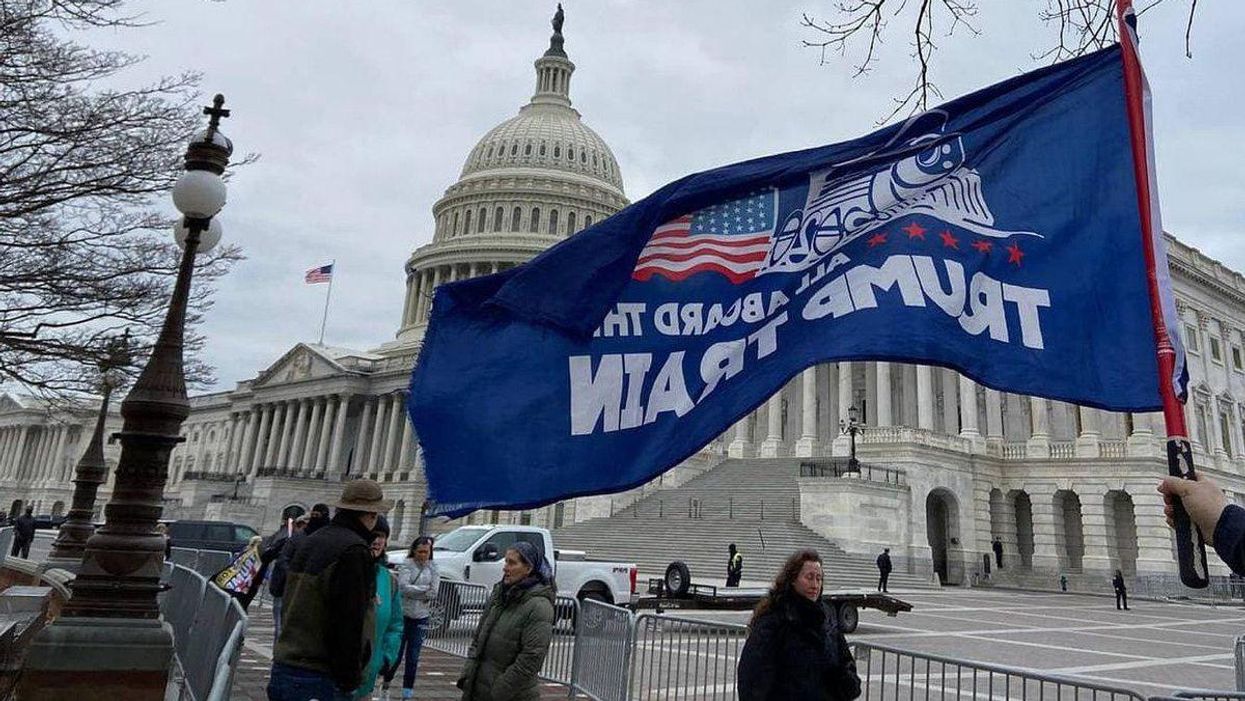Follow The Money: How Trump's Campaign Financed Jan. 6 Pre-Riot Rally
Reprinted with permission from Daily Kos
"Follow the money" is a handy bit of kit in a lot of situations. When it comes to looking at the events of January 6, it's good advice. Because, as OpenSecrets.org has revealed, Donald Trump's various campaign funds paid out over $4.3 million to the people who organized the insurgency warm-up rally on January 6. In fact, running down the list of people, there seems to be considerable overlap in the "staff" for Trump and the supposedly grassroots protest. That includes Trump's campaign director of operations, his national finance consultant, and at least half a dozen other people on the payroll of Trump's various campaign PACs.
In fact, the web of connections between Trump's campaign and the rally where he stepped up to urge the crowd's assault on Congress seems so entangled that the whole thing can be read as just another front stretched over Trump's campaign of self-enrichment. Not all of the names on the overlapping list of Trump and January 6 rally organizers have been targeted by the House Select Committee's latest requests for documents, but they ought to be.
It's past time for someone to turn on the lights and reveal just where the "dark money" that funded Women for America First, the "nonprofit group" that secured a permit and locked down a handy launchpad for insurrection.
Last week, the House Select Committee investigating the January 6 insurgency sent out a long list of requests for documents. That list included documents related to almost every adult member of Trump's family (excluding Tiffany), several long-time campaign advisors including Steve Bannon and Roger Stone, and a long list of others involved in planning or executing events on that day. Several of those who worked for both Trump's campaign staff and the various organizations that put together the "Stop the Steal" event were included on that list, but far from all.
This only shows that, as sweeping as the committee's requests were, they're still insufficient to come close to capturing the full scope of individuals and organizations involved, which should be no surprise. After all, the Republican Party has spent decades setting up a seemingly infinite number of "institutes" and "foundations" and "think tanks" through which a handful of extremely wealthy donors can turn their money into action. Add to this a Citizen's United-fueled PAC infrastructure and the kind of morass of entangled power and money that people visualize when talking about "the swamp" absolutely exists—on the right.
Now introduce to this Donald Trump, a man whose 100 percent one-man-owned "empire" consists of over 500 companies and corporations created expressly to disguise his own real worth, moving money around without visibility, and creating the illusion of actions necessary to generate tax breaks. Trump really was out to drain the swamp … right into his personal swamp.
From the look of the connections on January 6, he succeeded.
That document request wasn't, and won't be, the last. As The Washington Post reported, the committee has already followed up with a request to tech companies that could generate even more pages of text. On that document, it may not be the exact list of names that's drawing the biggest attention, but the request for communications records related to "any Member of Congress or congressional staff" who put in a call to Trump or the White House on that day.
That request has made GOP leader Kevin McCarthy very upset. For good reason. After all, the news has already come out about how Jim Jordan and Matt Gaetz phoned Trump from the Capitol and begged him to call off his goons. Again and again, it seems that Republicans understood two things very well on January 6: The people who were attacking the Capitol and threatening their lives were working for Trump, and Trump had the ability to tell them to stand down. But beyond showing how Republicans in Congress understood who was pulling the strings, the committee's review should also show how many were directly involved in planning or executing the assault on the Capitol.
The actions of the Select Committee won't drain the Republican swamp. It's been dredged out over decades, and exploring its labyrinthine bayous of purposeful obfuscation is work that might never be complete. But this much is clear just from the outset:
- The Trump campaign and the supposedly separate entities that not only planned the January 6 rally but also conducted attacks on democracy across the country were connected by both money and people.
- Trump's team created a media company to supposedly pay consultants, then lined up to take checks for themselves.
- Trump's campaign and PACs put out at least $4.3 million to pay those who set up the Washington, D.C. rally.
- Behind all of this was "dark money" whose sources have not been revealed, hiding behind the farce of nonprofit groups.
- The members of Congress who are now defending Trump understood—and understand—that he was behind the assault and that the mob and their organizers answer to him.
- As members of Congress, none of them can hide behind executive privilege, even in attempting to protect their conversations with Trump.
- Kevin McCarthy is a wiener.
That last part may seem unconnected, but it's always worth noting. Especially since McCarthy's taking the Fifth rather than admitting that he was one of those begging Trump to call off his mob is likely to be one of the highlights of the Select Committee's work.









